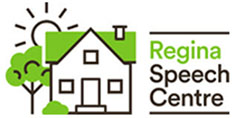So you need to hire a private speech language pathologist. You have accessed public services and perhaps you are on a waiting list, or want to supplement the services you are receiving. This has led you down the path of hunting for private speech language pathologist (SLP). Finding the right professional that will help you, your child, or your family member can be a daunting task. It can be easy to just pick the first person that you find, but that doesn’t mean that they are necessarily the right professional for you. Taking the time to find the right fit can be a worthwhile endeavour. So how to begin?
At the very least you can check educational and professional credentials. It’s highly unlikely that a person will be calling themselves a speech language pathologist if they are not, as it is a protected title. An SLP must possess a Master’s Degree from a reputable academic institution . They must also hold appropriate licensure from the province in which they maintain their practice. Additionally, many SLP’s will also hold either American or Canadian certification. If you are unsure about a professional you can check with a provincial licensing body to ensure that they are a member in good standing (here in Saskatchewan check with saslpa.ca).
Now let’s get to the trickier areas to evaluate:
Consider Experience
This is a difficult area to quantify. Looking for the therapist with many years experience may not be all that useful. It can’t be just any experience; it has to be the right experience! After all, do you really want a therapist with 20 years of experience in treating school age children’s articulation deficits when your toddler needs help with early language development (or vice versa)? Looking for a clinician’s direct experience with clients that have your child or family member’s communication difficulties will be invaluable. It is also a good idea to inquire regarding the areas of specialization of the therapist in order to find out whether he/she has successfully treated children with similar problems to your child’s. A good therapist will be honest about their direct experience with clients that have similar difficulties to yours.
Ask for recommendations and references.
One of my favourite speakers always says “competence speaks for itself”. We have all been there as a consumer, where we are unsure of the services being provided by the professional we are paying for. You probably wouldn’t hire a contractor to renovate your house randomly out of the phonebook or from a website, so don’t be shy and ask for references. Therapists should be more than happy to provide you with names of both parents and other professionals who will recommend their services.
Does your child or family member respond to and enjoy your therapist.
This sounds almost silly or simplistic, but communication development is about positive and fun interactions that are lead by the client, no matter the age. If we are talking about little children: is your therapist down on the floor, does your child warm up to them over a reasonable amount of time, do they know when to expect more of your child and when to back off? All clients can have good sessions and bad sessions, but overall your child or family member should develop a positive rapport quickly and easily with your therapist that continues over sessions. This rapport or therapeutic relationship can go a long way to helping develop confidence and communication.
Does your therapist include you?
If you are like most families your child will not be at speech therapy daily, what you are able to do at home really counts. Does your therapist listen to your concerns, work on things that matter to you, include you in the therapy and provide reasonable, doable suggestions? This piece really does matter. Is your therapist able to describe what they are doing, and why and include you in the planning and implementation of goals? Including your opinions and experiences as a parent is critical in ensuring the success of the intervention!
Does your therapist consider all aspects of your family life?
Let’s be honest, very seldom do you get one on one quiet time with your child in a secluded room. The reality is often you are working on speech in the car, in the tub, with siblings and other distractors. Does your therapist recognize this and provide strategies to work with all these factors? Also are they mindful of your budgetary needs? Work, and extra-curricular schedules? Is your therapist able to work with you in establishing doable programs with all the extras life throws at you? A therapist that is responsive to all the factors in your life is more likely to build a program you can follow at home!
Consider knowledge and professional development.
In order to maintain their licensure and certification all therapists are required to take professional education courses in order to stay up to date with all the relevant research and new treatments developed in our field. Speech language pathology is a well researched field; new methods are continually being developed and information is constantly changing. When you are selecting your therapist it is important to find out just how up to date are they on the current research, treatment methods and methodologies pertaining to your child or family members speech and language deficits. Your therapist should be forthcoming and appreciate inquiries regarding their background and relevant training. If something doesn’t make sense ask follow up questions.
Lastly: Don’t be intimidated!
This should be a partnership. You should understand and agree with you therapist’s methods and approaches and feel comfortable participating in and adding to your child or family member’s treatment. Ask questions, encourage explanations and create a dialogue. We don’t believe that we have a magic wand, but we do have expertise and knowledge that we can provide to you as a parent or caregiver that can support, guide, and help you teach your child.

